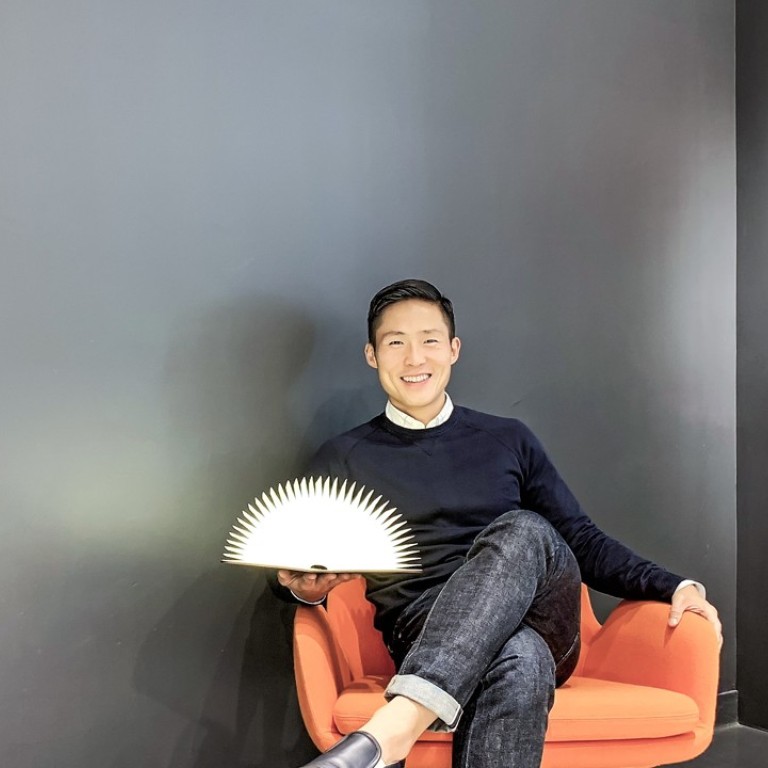Don’t judge a book by its cover: meet inventor Max Gunawan and his innovative lamp Lumio

Robert Herjavec put US$350,000 into the project in 2015 after all five ‘Shark Tank’ investors showed an interest in the San Francisco-based company, who also have an office in Hong Kong
Max Gunawan is the founder of Lumio, a multi-functional modern lighting device that unfolds from a book.
After leaving a career in architecture and a highly successful kick-starter campaign in 2013 that raised over US$570,000 after aiming for just US$60,000, Gunawan went on popular American investment TV show Shark Tank in 2015.
And after all five investors made him an offer, Gunawan accepted Robert Herjavec’s investment of US$350,000 for 10 per cent of his company.
Headquartered in San Francisco, Lumio has an international office in Hong Kong.
We talk to Gunawan about his strategies, future plans and being stranded on a desert island with British designer Alexander McQueen, Hong Kong filmmaker Wong Kar-wai and Spanish chef Albert Adria.
Apart from appearing on Shark Tank, what has been the most inspired decision you’ve made since you founded Lumio?
The decision that I made to not limit myself to be in one place just because of work constraints or just doing things out of obligation. When I made that decision, it really changed the way I work. I live in San Francisco, and I’m still based there, but I only live there six months out of a year. I come to Hong Kong every other month, and the rest of the time these days, I travel around the world for meetings, design related events like Maison et Objet in Paris, and the rest is just to find inspiration.
I used to feel guilty, because it’s the Chinese upbringing – you work, you work hard and you work in an office. When I started to part ways with all of that guilt and thinking that there's only one way of working, I think it really freed me up to think bigger about the vision and what I want out of life and how I want to push the brand forward. I remember when I started two years ago, I was like a hungry entrepreneur wanting to really push the success and getting the business right.